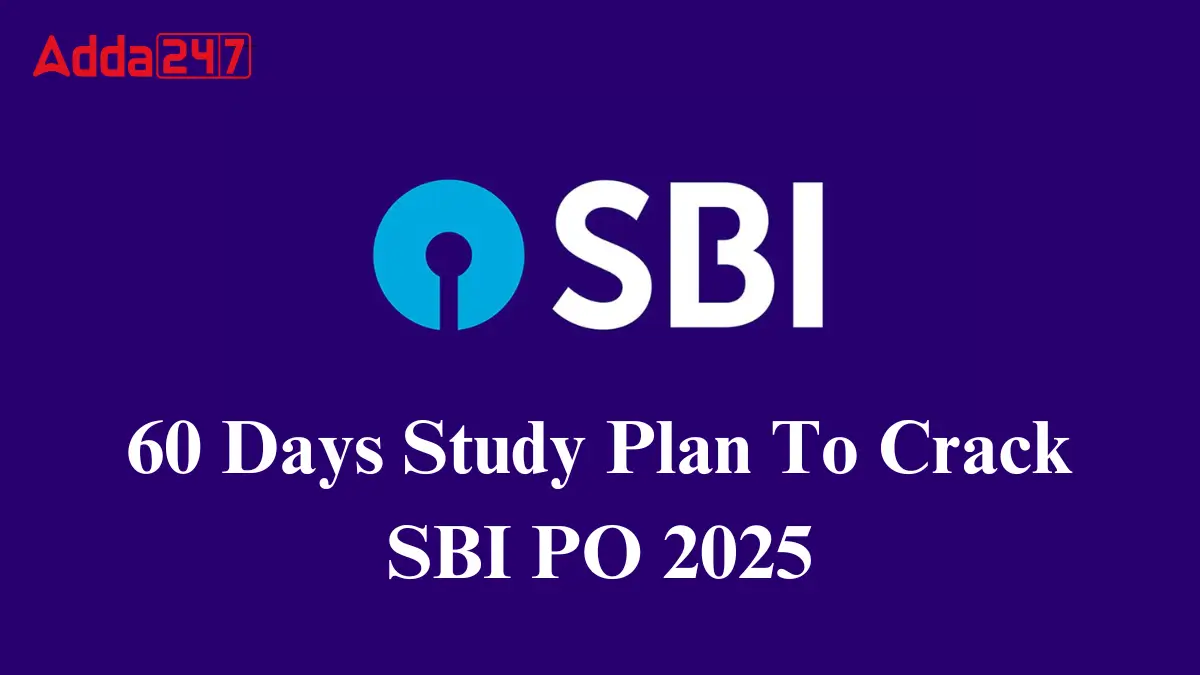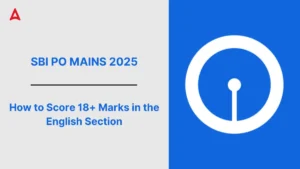Table of Contents
The State Bank of India (SBI) PO exam is one of the most anticipated banking exams in India. The SBI has recently released a notification of this exam for 600 vacancies and the exam dates are 8 and 15 March 2025. With close to 60 days left for this exam it is important for the candidates that they start preparing from now and don’t waste any time. In this article we are providing the candidates with a 60 Days study plan for SBI PO 2025 exam.
60 Days Study Plan for SBI PO 2025
The SBI PO exam is among the most competitive banking exams in India. With a vast syllabus and high competition, it requires a well-structured study plan to excel. We provide a 60 Days Study Plan to help you crack the SBI PO 2025 exam with flying colors. We have kept in mind the needs of both the freshers and the repeaters while curating this plan. Follow this and cover all the essential topics to ensure success in the examination.
60 Days Study Plan for Beginners
Day 1-20: Strengthening the Basics
Quantitative Aptitude: Begin with foundational topics such as simplification, approximation, number series, and basic data interpretation (DI). Focus on understanding the basic concepts and solving basic to medium level questions. Gradually work on improving speed and accuracy using daily practice.
Reasoning Ability: Master the basics of puzzles, seating arrangements, blood relations, and coding-decoding. These areas are scoring and frequently appear in the exam. Practice a variety of puzzles to enhance logical thinking and improve problem solving techniques.
English Language: Start with reading comprehension and vocabulary building. Read newspapers and articles to improve comprehension skills and expand your vocabulary. Focus on grammar rules and sentence correction to lay a solid foundation for the English section.
Day 21-40: Advanced Topics and Time Management
Quantitative Aptitude: Move to advanced topics such as profit and loss, time and work, time and distance. These topics hold significant weight in the exam. Practice complex problems regularly to boost your confidence and problem-solving abilities.
Reasoning Ability: Focus on advanced topics such as input-output, data sufficiency, and logical reasoning. Practice direction sense and advanced puzzles like circular and floor-based arrangements to build speed and accuracy.
English Language: Improve sentence, error spotting, and para jumbles. Strengthen vocabulary and improve reading speed to handle challenging comprehension passages effectively. Consistent practice will help you score good marks.
Day 41-50: Full Revision and Mock Tests
Revision: Revise all the important formulas, concepts, and tricks. Use concise notes for quick revision and identify areas needing extra focus. Concentrate on topics where you feel less confident to solidify your understanding.
Mock Tests: Begin taking full-length mock tests to simulate the actual exam environment. Practice solving questions within the time limit and analyze your performance. Focus on time management and improving weaker sections based on the results.
Mock Tests: Dedicate these days to intensive mock test practice. Aim for speed and accuracy while solving full-length mock tests. Practice section-wise tests to refine your strategy and boost confidence.
Revision: Go through key concepts, formulas, and shortcuts. Review error logs from previous mock tests to address mistakes. Ensure all essential topics have been revised thoroughly.
Final Strategy: Plan your time management strategy for the exam. Decide the sequence of attempting sections, starting with reasoning, followed by quantitative aptitude, and concluding with English. Stay calm and confident.
60 Days Study Plan for Repeaters
Day 1-20: Strengthening Weak Areas
Quantitative Aptitude: Identify and address challenging topics from past attempts, like advanced DI, profit and loss, and time and work. Focus on speed maths techniques and practice high-difficulty problems to enhance accuracy.
Reasoning Ability: Concentrate on improving speed and precision in puzzles, seating arrangements, and input-output. Work on advanced reasoning topics like data sufficiency and logical reasoning to gain a competitive edge.
English Language: Revisit areas needing improvement, such as reading comprehension, error spotting, and sentence correction. Enhance vocabulary and practice solving RC passages from previous exams.
Day 21-40: Full-Length Practice and Advanced Topics
Quantitative Aptitude: Refine skills in mixed DI sets and challenging arithmetic problems. Focus on advanced topics like partnership, pipes and cisterns, and algebraic equations. Time-bound practice is essential.
Reasoning Ability: Attempt complex puzzles and improve decision-making skills in data sufficiency questions. Work on miscellaneous reasoning topics under timed conditions to work on time management.
English Language: Focus on advanced comprehension passages, grammar exercises, and para jumbles. Analyze mistakes in mock tests to fine-tune accuracy and approach.
Day 41-50: Full Revision and Mock Tests
Quantitative Aptitude: Review important concepts and solve mixed DI and arithmetic sets. Take daily quizzes to maintain speed and accuracy.
Reasoning Ability: Revise advanced puzzles and logical reasoning topics. Take mock reasoning tests to assess improvement and address weak areas.
English Language: Solve full-length English section mock tests and focus on improving time management. Practice error spotting and sentence improvement with high-difficulty questions.
Day 51-60: Full Mock Tests and Last-Minute Revision
Mock Tests: Take 2-4 mock tests daily, including full-length and section tests. Evaluate performance, identify mistakes, and form your exam strategy.
Revision: Revise the formulae thoroughly and go through all the basic concepts of all the subjects once. Stay Calm and Focused about the exam don’t panic.




 Is IBPS RRB Difficult To Crack?
Is IBPS RRB Difficult To Crack?
 How Many Hours Should You Study for IBPS...
How Many Hours Should You Study for IBPS...
 How to Score 18+ Marks in the English La...
How to Score 18+ Marks in the English La...




